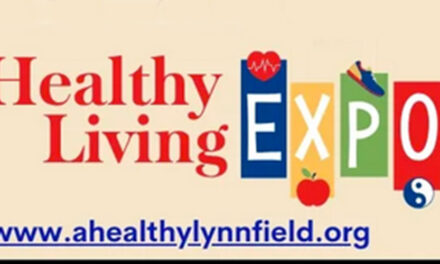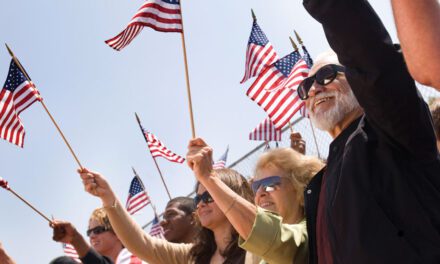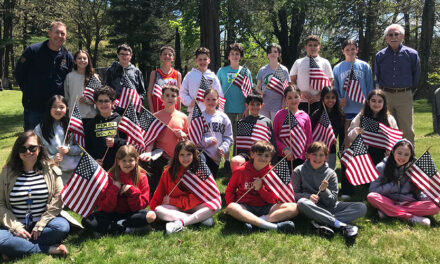Published May 1, 2019
By DAN TOMASELLO
LYNNFIELD — Town Meeting on Monday supported a proposal that will implement a new speed limit in areas that are not currently posted.
Article 12 sought to establish a 25 mile-per-hour speed limit in residential and business districts that are not currently posted. Town Administrator Rob Dolan explained that the Municipal Modernization Act allows municipalities to implement various reforms including changing speed limits in areas that are not posted.
“We feel strongly that limiting the speed limit to 25 mph in areas that do not have a designated speed limit would provide increased safety in our neighborhoods and improve our quality of life,” said Dolan.
Police Chief David Breen said the proposed change would not affect streets that already have posted speed limits such as Summer Street.
“It’s not allowed by law,” said Breen.
Saunders Road resident Gerald Shulman said, “It’s about time to reduce the speed limit to 25 mph.”
“I think the center of town should be 15 mph,” Shulman added.
A Summer Street resident inquired what steps the town would need to undertake in order to reduce that road’s speed limit to 25.
Dolan said the town would need to undertake a traffic study, which will need to be submitted to the Massachusetts Department of Transportation.
In response to a question from a Heather Drive resident, Dolan said signs will be posted at the various town lines highlighting the speed limit change.
After the discussion, Town Meeting approved the speed limit change 374 votes to 151 votes.
Budgets OK’d
Town Meeting approved the recommended fiscal year 2020 operating and capital budgets.
The town’s proposed operating budget for FY20, totaling $56,681,943, appeared as Article 6 on the warrant. The spending plan represents a 3 percent increase over FY19’s $55,008,308 operating budget.
Partridge Lane resident Harry LeCours made a motion to increase the Board of Health’s budget by $2,000 for the purpose of conducting an air quality study in town. He wanted the air quality study to focus on MarketStreet, Salem Street, Walnut Street and Route 128.
“I have become increasingly concerned about our air quality due to the traffic congestion on Walnut Street, Salem Street and MarketStreet,” said LeCours.
While Health Director Kristin Esposito-McRae said the Board of Health has not undertaken an air quality study at MarketStreet, she said “the state does do air quality testing.” She sent LeCours a copy of air quality testing results for Essex County prior to Town Meeting.
LeCours responded by stating he was looking for local data on air quality.
“I believe that would be a greater subject of conversation that would require other departments to weigh in,” said Esposito-McRae in response.
Board of Health Chairman Rocco Iocco said the proposed amendment could be revisited in the future.
After Veterans’ Services Officer Bruce Siegel moved the question, Town Meeting voted to reject LeCours’ amendment.
Subsequently, Town Meeting approved the proposed FY20 operating budget 419 votes to 66 votes.
Town Meeting approved Article 7, which is the town’s capital budget, 431 votes to 69 votes. The FY20 capital budget totals $982,215.
Additional articles
Town Meeting approved Article 1, which acted on reports of town officials and special committees. Article 2 was also approved, which designated Robert MacKendrick, Jon Procurot and Betty Adelson as field drivers; David Crockett as pound keeper; and MacKendrick and Ken Burnham as wood measurers.
Article 3 was also approved by Town Meeting, which set the pay rate for members of the Board of Selectmen and Board of Assessors. Selectmen Chairman Phil Crawford noted the pay for selectmen chairman is $850, while the other selectmen will each receive $700. The pay rate for Board of Assessors is $4,100 for the chairman and $3,550 for the other two members.
Town Meeting approved Article 4 354 votes to 48 votes. This will transfer $201,367 in order to balance the FY19 budget. Town Meeting approved Article 5, which will allocate $48,933 for the purpose of paying overdue bills from a previous fiscal year.
Article 8, which sought to allocate $150,000 to the Stabilization Fund, was approved 409 votes to 71 votes.
Town Meeting approved Article 9, which set the spending limits for the town’s revolving funds.
In response to a question from Jill Giugliano, Dolan said the $300,000 spending limit for Lynnfield Recreation does not pertain to the rail trail.
Town Meeting approved Article 10, which will appropriate $782,326 to the Emergency Medical Services Enterprise account from the fund’s receipts. Town Meeting also approved Article 11, which will allocate $950,000 for the Golf Enterprise Account from that fund’s receipts.
Voters approved Article 13, which will petition the State Legislature to remove the part-time sealer of weights and measures position from the Civil Service Law.
Town Meeting took no action on Article 14, which would have asked voters to approve allowing a cinema to be constructed at MarketStreet Lynnfield. National Development withdrew Article 14, but it still appeared on the warrant since it had already been closed.
After a lengthy debate, Town Meeting approved an amended Article 15 392 votes to 123 votes. The zoning change will now require the Planning Board to issue a Special Permit for any elderly housing development in an Elderly Housing District.
Town Meeting rejected Article 17, which would have allowed local boards and officers to set fees for licenses, permits, certificates or services. While the Board of Selectmen recommended Article 17, Finance Committee Chairman Chris Mattia said the FinCom opposed it.
“The majority of the board felt Town Meeting should set the fees,” said Mattia.




